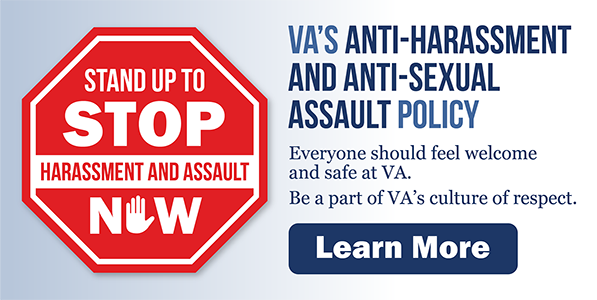American Former Prisoners of War
You are considered a Former Prisoners of War (FPOW) if during wartime active service, you were forcibly detained or interned (put in prison) in the line of duty by an enemy government, its agents or a hostile force.
You are considered a FPOW if you were forcibly detained or interned by a foreign government or its agents or a hostile force during peacetime active service, if the circumstances of the internment were comparable to wartime internment. For example: Iran, Somalia, or Kosovo.
What disabilities are presumptive conditions for FPOWs?
You are generally entitled to a presumption of service-connection for eight diseases (or groups related conditions), if manifested to at least a minimally compensable degree of 10 percent or more after discharge or release from active military. These diseases are:
- Psychosis
- Any of the anxiety states
- Dysthymic disorder or depressive neurosis
- Post-traumatic osteoarthritis
- Atherosclerotic heart disease or hypertensive vascular disease (including hypertensive heart disease) and their complications (including myocardial infarction, congestive heart failure, arrhythmia)
- Organic residuals of frostbite
- Stroke and complications Osteoporosis
- If you filed your claim on or after October 10, 2008, and you have a diagnosis of posttraumatic stress disorder, or PTSD
For former POWs held captive for 30 days
The following conditions presumed to be service-connected:
- Avitaminosis
- Beriberi (including heart disease)
- Chronic dysentery
- Cirrhosis of the liver
- Helminthiasis
- Malnutrition, including associated optic atrophy
- Any other nutritional deficiency
- Peptic ulcer disease
- Irritable bowel syndrome
- Pellagra and any other nutritional deficiency
- Peripheral neuropathy, except where directly related to an illness caused by an infection, on or after September 28, 2009
Are there medical benefits for FPOWs?
Yes. If you have a service–connected disability, you're eligible for VA hospital, nursing home, and outpatient treatment. If you do not have a service-connected disability, you're eligible for VA hospital and nursing home care – without regard to their ability to pay. You're also eligible for outpatient care on a priority basis – second only to Veterans with service-connected disabilities.
While receiving treatment in an approved outpatient treatment program, you're eligible for needed medicines, glasses, hearing aids or prostheses. You're also eligible for all needed dental care.
There is no co-payment requirement for FPOWs at VA pharmacies.
Are there benefits for survivors of FPOWs?
Yes. The major benefit is Dependency and Indemnity Compensation. A monthly benefit payable to the surviving spouse (and the FPOW’s children and parents in some cases) when the FPOW:
- Was a Servicemember who died on active duty, or
Died from service-related disabilities, or - Died on or before September 30, 1999, and was continuously rated totally disabled for a service-connected condition (including individual unemployability) for at least 10 years immediately preceding death, or
- Died after September 30, 1999, and was continuously rated totally disabled for a service-connected condition (including individual unemployability) for at least 1 year immediately preceding death.
DIC is terminated for a surviving spouse who remarries. It can be resumed if the remarriage ends in death, divorce or annulment.
If a surviving spouse remarries, he or she can receive or continue to receive DIC if one of following apply:
- They remarried on or after December 16, 2003, and were 57 years of age or older at the time they remarried, or
- They remarried on or after January 5, 2021, and were 55 years of age or older at the time they remarried
Are there other benefits for FPOWs and their dependents/survivors?
Veterans:
Pension (income based), medical care, education and training, home loan guaranty, and burial benefits. Certain disabled Veterans may also be eligible for Veterans Readiness and Employment services, insurance, clothing allowance, special adapted housing assistance, and specially adapted automobile equipment.
Certain survivors and/or dependents:
May be entitled to health care, survivors’ pension (income based), education and training, home loan guaranty, burial benefits and burial in a national cemetery. See other VA fact sheets regarding benefits or contact VA for more information.
Is special assistance available to FPOWs?
VBA has a FPOW Veterans Outreach Coordinator at each VA Regional Office. Any FPOW who needs special assistance should ask to speak to the FPOW coordinator. Additional FPOW information is available on the compensation webpage.
How to Apply
There are many paths to eligibility, and applying is the best way to know if you qualify. Generally, Servicemembers, Veterans, and families can apply for VA benefits using one of the methods below.
- Apply online using VA.gov, OR
- Work with an accredited representative or agent, OR
- In person at the nearest VA medical center or clinic, OR
- By calling the toll-free hotline: 800-698-2411, OR
- Go to a VA regional office and have a VA employee assist you. You can find your regional office on our Facility Locator page.
File your claim using an Application for Disability Compensation and Related Compensation Benefits (VA Form 21-526EZ). Print the form, fil it out and send it to:
Department of Veteran Affairs
Claims Intake Center
PO Box 4444
Janesville, WI 53547-4444
External Link Disclaimer: This page contains links that will take you outside of the Department of Veterans Affairs website. VA does not endorse and is not responsible for the content of the linked websites.




















